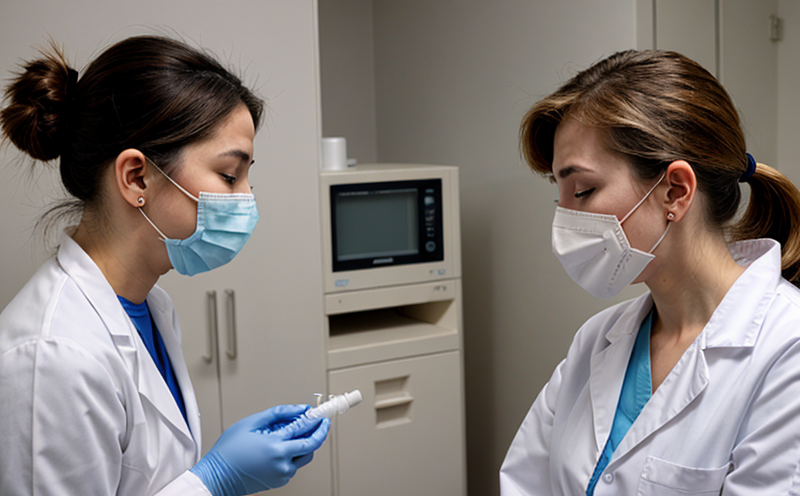Cockroach Allergen Detection Testing in Residential Units
In recent years, cockroach allergens have emerged as a significant public health concern, particularly within residential units. Cockroaches are ubiquitous pests that can thrive even in the cleanest of environments and pose threats to human health through their allergenic properties. The detection of cockroach allergens is not only essential for identifying infestation sources but also crucial for implementing effective pest management strategies.
Residential units, especially those with compromised structural integrity or poor sanitation practices, are particularly vulnerable to cockroach infestations. These pests can leave behind their saliva, fecal matter, and body parts, which contain potent allergens capable of triggering allergic reactions in sensitive individuals. Allergic symptoms can range from mild (itching, sneezing) to severe (asthma exacerbation), emphasizing the necessity for accurate detection methods.
Our Cockroach Allergen Detection Testing service utilizes advanced immunoassay technologies that are highly sensitive and specific in identifying cockroach allergens. This service is designed to assist quality managers, compliance officers, R&D engineers, and procurement specialists in ensuring the safety of residential units by detecting and quantifying these allergens.
The testing process involves collecting samples from suspected areas within the residential unit using specialized swabs or air sampling devices. These samples are then analyzed for the presence of cockroach allergens using enzyme-linked immunosorbent assays (ELISAs). Our laboratories adhere to strict ISO 17025 standards, ensuring reliable and consistent results.
Once testing is completed, detailed reports are generated, providing actionable insights into potential infestation sites. These reports include the concentration of allergens detected and recommendations for pest control measures. This information can be invaluable in formulating comprehensive strategies to mitigate health risks associated with cockroach allergens.
The significance of our testing extends beyond mere identification; it plays a pivotal role in public health initiatives aimed at reducing allergy prevalence. By leveraging this service, stakeholders can contribute significantly to improving the quality of life for residents and enhancing overall environmental hygiene.
Why It Matters
The importance of cockroach allergen detection cannot be overstated, especially in residential settings where exposure is common. Cockroaches are known carriers of various pathogens and can exacerbate existing respiratory conditions such as asthma. The presence of cockroach allergens has been linked to increased healthcare costs due to frequent visits for allergy-related issues.
Our testing service helps in preemptively addressing potential health risks by providing early detection and intervention opportunities. By identifying infestation sources, stakeholders can implement targeted pest control strategies that are both effective and environmentally friendly. This proactive approach not only reduces the prevalence of allergens but also contributes to better indoor air quality, thereby promoting healthier living environments.
The service is particularly beneficial for vulnerable populations such as children, elderly individuals, and those with pre-existing respiratory conditions. By ensuring safe and allergen-free spaces, this testing can play a crucial role in reducing healthcare burdens associated with cockroach-related allergies.
Applied Standards
The Cockroach Allergen Detection Testing service at our laboratory adheres to stringent international standards that ensure accuracy and reliability. The primary standard used is ISO 17025, which governs the technical requirements for the competence of testing laboratories.
In addition to ISO compliance, we also follow methods prescribed by ASTM E2643-18, which outlines procedures for detecting cockroach allergens using immunoassay techniques. This standard ensures that our tests are consistent with industry best practices and align with regulatory requirements.
Our testing methodology is further validated through rigorous quality control measures that include inter-laboratory comparisons and proficiency testing exercises. These efforts ensure that the results obtained from our laboratory are trustworthy and can be relied upon for decision-making purposes.
Environmental and Sustainability Contributions
- Reduction in Pesticide Use: By identifying infestation sources accurately, we help minimize unnecessary pesticide applications. This reduces the environmental impact associated with overuse of chemicals.
- Enhanced Indoor Air Quality: Detecting and eliminating cockroach allergens leads to improved air quality within residential units, contributing positively to public health.
Our service supports sustainability goals by promoting a healthier living environment through precise pest management practices. By addressing cockroach infestations effectively, we contribute to long-term environmental benefits while ensuring the well-being of residents.





